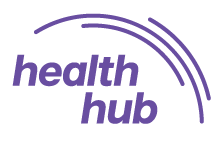1. Watch the recorded webinar below from start to finish.
2. To claim your hours, click on the claim a certificate button. This will send you a quick quiz about the webinar, once answered a certificate will be generated for you.
About the webinar
Hector Matthews
Executive Director, Māori and Pacific Health
Married with three adult tamariki and three mokopuna, whānau are at the centre of Hector’s work and life. Hector strongly supports the revitalisation of te reo Māori and tikanga as a foundation for whānau wellbeing.
Hector is the Executive Director of Māori and Pacific Health at the Canterbury District Health Board. Hector has been working in Māori health and Māori communities since leaving the army with the rank of Captain in 1997, following a one year peacekeeping mission in the Middle East. Hector chaired the establishment of a Kura Kaupapa Māori (immersion Māori language school) in Christchurch for 10 years and chaired the council of Christchurch Polytechnic Institute of Technology for 8 years. He also managed a large urban marae for four years and is a current lay member of the Lawyers and Conveyancers Disciplinary Tribunal.
Hector holds a Bachelor of Arts in Te Reo Māori and Māori & Indigenous Studies and Graduate Diploma in Telecommunications Systems Management. He is also an Ahorei (senior tutor) of Mau Taiaha and Nidan (second degree black belt), Seido Karate.
The topic will include:
Equity is defined by the World Health Organization as the absence of avoidable or remediable differences among groups of people. The concept acknowledges that not only are differences in health status unfair and unjust, but they are also the result of differential access to the resources necessary for people to lead healthy lives.
Within New Zealand, Māori people have the most pervasive and long-standing health inequities:
- Māori life expectancy is considerably lower than that for non-Māori
- Mortality rates are also higher for Māori than for non-Māori at nearly all ages
- Māori health status remains unequal with non-Māori across almost all chronic and infectious diseases, as well as injuries, including suicide
- Māori access services less and have poorer overall outcome.
Some gains have been made towards health equity over the past 20 years, such as improved immunisation rates for Māori children. However more work needs to be done to achieve health equity for Māori.
